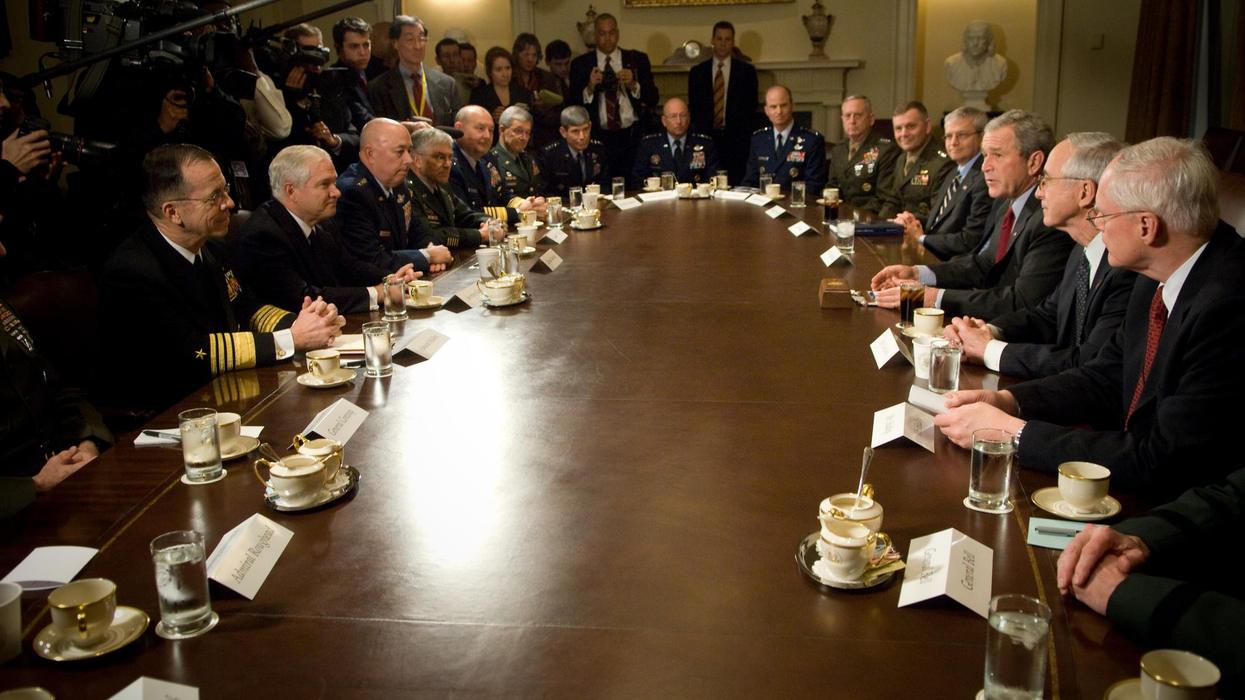The Israeli security cabinet approved a plan early Friday for the military takeover Gaza City, which is the largest population center in the strip — at least it was before Oct. 7 — stopping short of plans to take over the entire enclave.
The implications are huge. Until now, the IDF has been largely engaged in an air war to destroy the perpetrators of the Oct. 7 attacks killing more than 61,000 Gazans, mostly civilians (the toll is likely much higher), injuring hundreds of thousands, destroying 70% of civilian infrastructure and the healthcare system, and blockading the territory leading to mass starvation and more death. But there are still live hostages and Hamas is still operating so this new strategy is supposed to resolve that.
While Israel controls most of the movement on the strip through this air war, this new step would mean putting boots on the ground to control an entire city. Experts including IDF officials say this kind of campaign is nuts. Israel's mostly reservist forces have been stretched and traumatized, the economy too, and protests are starting to rage in the Israeli streets for an end to the war.
A takeover of Gaza, even just its biggest city for now, would put more troops at risk with the invitation of guerrilla warfare, more Gazans will be forced to migrate again from makeshift shelters, more will die. There is no confidence anywhere that Israel wants to bring more food and other assistance into the enclave. Far right leaders have all but said they want to starve the people, expel them from the land. They've already said the quiet part out loud and they hold the most important cards in Benjamin Netanyahu's government right now.
The German government has responded by halting all arms exports to Israel for use in Gaza. “Under these circumstances, the German government will, until further notice, not approve any exports of military equipment that could be used in the Gaza Strip,” Merz said in a government press release, adding that he did not think the military operation will achieve Israel's goals of defeating Hamas and securing the hostages. If anything, critics say, those living hostages are in even more peril now.
The UK has also weighed in this morning. “The Israeli government’s decision to further escalate its offensive in Gaza is wrong, and we urge it to reconsider immediately,” British prime minister Keir Starmer said in a statement. “This action will do nothing to bring an end to this conflict or to help secure the release of the hostages. It will only bring more bloodshed."
So what about the United States, which has largely financed the war with its $4 million a year in military assistance and more than $22 billion since 2023? Trump has reportedly given the green light for Netanyahu's plans, but nothing official has come out of the White House as of this morning.
Trump did say that it was "pretty much up to Israel" when asked by a reporter earlier this week, and said the U.S. would be taking over the humanitarian aid there. His ambassador to Israel, Mike Huckabee, said Washington would be increasing the number of aid hubs by the Global Humanitarian Foundation (GHF) from 4 to 16 which is a nightmare waiting to happen. American contractors, reportedly armed with guns carrying armor-piercing ammunition, are used to manage and security those sites. Over 1,000 desperate Gazans have already been killed there, presumably mostly by IDF, given witness testimony. Contractors who have come forward have described a dystopian hellscape where "war crimes are committed every day." Trump wants to put that on steroids.
If Israeli military start taking ground by clearing Gazans and setting up military posts they will no doubt draw fire and many more will die. If Trump expands these shadowy aid centers which are not helping Gazans, more Americans will be on the ground, too, and in harms' way. What's next, an American military intervention? Al Monitor reported Thursday that "the Pentagon is awaiting approval from the White House to implement plans that would see the U.S. military help funnel additional humanitarian aid into Gaza" referring to plans — not yet confirmed — to provide logistical help to this GHF ramp-up.
The American people won't go for it.
- Huckabee: US to support 12 more GHF aid sites in Gaza ›
- Trump's Gaza vision would be US counterinsurgency failure 2025 ›
- Trump's Gaza plan is not America First ›

















